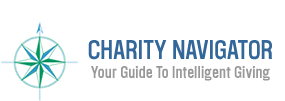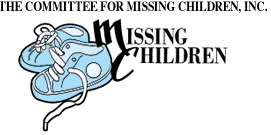 Now, as at the end of every calendar year, we are besieged by charities asking for support. Incoming mail brims with urgent and passionate pleas. Your phone will ring at dinner time. Even with a “Do Not Call” prohibition installed on your phone number, you can still expect calls from non-profits you have previously supported (and from scofflaw telemarketers calling from Canada). How do you decide which charities to support?
Now, as at the end of every calendar year, we are besieged by charities asking for support. Incoming mail brims with urgent and passionate pleas. Your phone will ring at dinner time. Even with a “Do Not Call” prohibition installed on your phone number, you can still expect calls from non-profits you have previously supported (and from scofflaw telemarketers calling from Canada). How do you decide which charities to support?
There is a website devoted to answering this question: Charity Navigator.
Calling itself “America’s premier independent charity evaluator,” (and I suspect it is), Charity Navigator “works to advance a more efficient and responsive philanthropic marketplace by evaluating the financial health of over 5,500 of America’s largest charities.”
The non-profit, funded primarily by NY philanthropists, was used by more than four million donors in 2009.
Charity Navigator is extremely easy to use. Just search for the charity you are considering. The metric I find most informative is Fundraising Expenses. This measures the percentage of all expenses that goes to fundraising.
Charity Navigator does not claim to evaluate the effectiveness of the non-profit’s programs. In fact, as Don Griesmann explains in his Non-Profit Blog:
 They measure NPOs basically on previous Form 990s, a troubled, unclear and mistake prone IRS annual report. Not even CPAs agree what goes into certain financial parts of the 990 – what are administrative expenses, what are program expenses, what are fundraising expenses? Where are the issues
They measure NPOs basically on previous Form 990s, a troubled, unclear and mistake prone IRS annual report. Not even CPAs agree what goes into certain financial parts of the 990 – what are administrative expenses, what are program expenses, what are fundraising expenses? Where are the issues  of effectiveness, evaluation, outcomes, impact, results, change, morality, integrity and ethics in Charity Navigator’s ratings?
of effectiveness, evaluation, outcomes, impact, results, change, morality, integrity and ethics in Charity Navigator’s ratings?
Griesmann makes a good point. You should carefully choose the cause you wish to support, using Charity Navigator as just one of the data points in your decision.
The website will, however, be very effective in helping you say no to the telephone solicitors from “worthy” non-profits like these (embarrassingly astronomical fundraising expenses in parentheses):
Deputy Sheriffs’ Fraternal Organization—Indianapolis (70.3%)
Children’s Cancer Fund Of America—Powell, TN (50.8%)
The Association for Firefighters & Paramedics—Santa Ana, CA (88.1%)
The Committee for Missing Children—Lawrenceville, GA (86.5%)
Staggering numbers! Only the telemarketer wins  when you support a “charity” like those featured above…one that spends half to almost all of what you donate on solicitation.
when you support a “charity” like those featured above…one that spends half to almost all of what you donate on solicitation.






One Comment on “Evaluating Charities”
Thanks. Good advice!
Comments are closed.